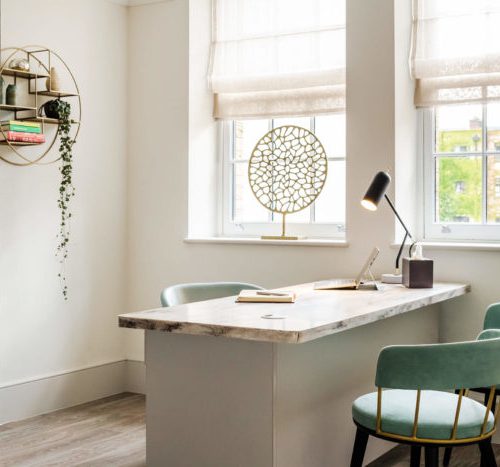How reflexology can support your IVF journey
IVF and early pregnancy are often emotionally intense and physically demanding times, especially for those navigating fertility treatment or pregnancy after loss.
Anabel Cutler explains how reflexology provides a calming and grounding space, helping to ease stress, restore balance, and support emotional well-being during this vulnerable journey.
How reflexology can support your journey through fertility and early pregnancy
By Anabel Cutler, reflexologist
Fertility treatment is an incredible innovation; a miracle for many who otherwise would never have had the opportunity to raise a family. But it’s not necessarily an easy journey.
For anyone who has found themselves on the long and often isolating road of fertility treatment, the experience can feel exhausting and quietly shattering. It’s a journey that many walk in silence, shouldering the weight of dashed hopes, injections, scans, and whispered conversations behind clinic doors. There’s the ache of waiting. The invisible grief. And often, a creeping sense of shame, particularly when those around you seem to fall pregnant with ease.
It’s in this personal landscape that reflexology has begun to emerge as a deeply supportive and restorative complementary therapy. For many individuals and couples navigating assisted fertility, it offers something that can be a real help whilst going through the clinical process: emotional support, gentle touch, and a chance to breathe.
What is reflexology?
Reflexology is a gentle pressure point technique used primarily on the feet, face, ears, and hands, the extremities of the body, where neural pathways terminate. These areas reveal an intricate mapping system, where specific points are aligned with the organs and systems of the body.
It balances all the organs and systems of the body and deeply relaxes the nervous system, stimulating the body’s healing process. The experience can be surprisingly powerful. Clients often describe it as a time to switch off and reconnect with their body. Reflexology gives them a space to talk, or not talk. To feel. To rest.”
Treatments benefit everyone, regardless of their state of health or age, and can be particularly useful in reducing stress and supporting fertility, conception, and childbirth.

Fertility and the weight of stress
While reflexology cannot “cure” infertility, research has increasingly highlighted its potential as a complementary therapy. Fertility is a complex interplay of hormones, timing, and emotional well-being, and stress is known to disrupt the delicate hormonal balance that supports ovulation and implantation.
A 2020 study published in Complementary Therapies in Clinical Practice found that reflexology significantly reduced stress and anxiety levels in women undergoing fertility treatment. Another review, published in The Journal of Alternative and Complementary Medicine, reported reductions in cortisol levels, our primary stress hormone, following reflexology sessions.
This is more than just feeling better; stress has a profound impact on reproductive health at a physiological level. By creating a more relaxed internal environment, reflexology may indirectly support the body’s natural rhythms, which are so often disrupted by the pressures of fertility treatment.
Beyond the science: the power of feeling seen
But perhaps what makes reflexology truly powerful during fertility struggles is its emotional resonance. The process of trying to conceive can feel intensely private and isolating. Many couples choose not to share what they’re going through, fearing judgment, pity, or simply not wanting to talk about something so intimate when the outcome remains uncertain.
For these individuals, reflexology offers not just touch, but connection. A chance to feel seen without needing to explain. To show up without answers. To experience their body not as a battleground of tests and time limits, but as something worthy of care.
Easing anxiety in early pregnancy
When pregnancy does happen, often after months or years of effort, joy can be tempered by anxiety. The first trimester can feel fragile, particularly for those who have experienced loss or come through IVF. While friends and family might expect celebration, many women are quietly holding their breath.
Reflexology during early pregnancy can help reduce this anxiety. According to a 2023 meta-analysis published in Complementary Therapies in Clinical Practice, reflexology was associated with lower self-reported anxiety and improved sleep among pregnant women. Practitioners employ techniques specifically designed for this delicate stage, helping to calm the nervous system and provide reassurance through gentle, grounded touch.

A complement, not a cure
It’s essential to note that reflexology should always be part of a holistic approach, used in conjunction with, not instead of, medical advice and fertility treatment. But for many, it adds something that medicine alone cannot: emotional grounding, quietude, and a return to self.
Many couples attend sessions together, using the time to reconnect away from the constant medical narrative of test results and timings.
The quiet radical act of care
In a culture that often rushes to fix, plan, and optimise, reflexology offers a quietly radical alternative: deep listening, not to words, but to the body. It’s an invitation to come home to yourself, however that looks on any given day.
For those navigating the complex terrain of fertility, such care can be profoundly healing. And in the early, uncertain months of pregnancy, it can help calm a nervous system that’s been on high alert for far too long.
In the words of one client: “It was the only place I didn’t have to pretend I was fine.”
And sometimes, that’s enough.
Interested in trying reflexology for IVF?
To book an appointment with Anabel, click here and follow Anabel on Instagram here.


